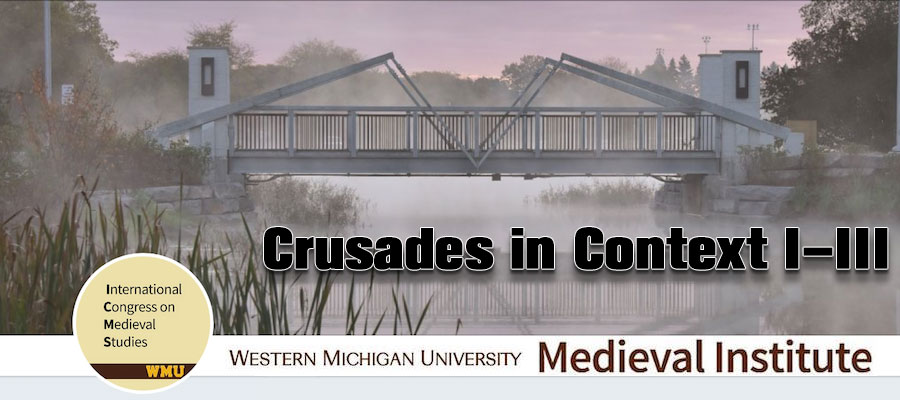Crusades in Context I–III, sessions at the 54th International Congress on Medieval Studies, Western Michigan University, May 9–12, 2019
One of the biggest problems in the traditional study of the crusades has been taking the crusades as discrete, independent events. Acknowledgement is given to particular reasons to call the crusades, but the armed pilgrimages themselves are study as a separate field that is largely analyzed within itself. From the outside, these seems at best short-sighted, at worst a catastrophic self-imposed limitation on the field. Many of the best works from a Latin perspective being done on the crusades today—Elizabeth Lapina’s Warfare and the Miraculous in the Chronicles of the First Crusade and Cecilia Gaposchkin’s Invisible Weapons: Liturgy and the Making of Crusade Ideology immediately come to mind—have expanded the field of study to take in the vast wealth of Latin literature that impacted crusade chronicles and belief. The Crusades in France and Occitania Project, which is sponsoring these sessions, has worked and will continued to work in these sessions to bring in more of the richness of medieval Latin history into the study of the crusades as we have done the past three years.
In a departure from our normal sessions, however, this year we are going to broaden the context to bring in not only Latin sources, but, we hope, Byzantine, Syriac, Armenian, Georgian, Coptic, and Arabic sources, and properly contextualize the crusades as not only a product of on- going processes and beliefs in Latin Europe, but also as being an insertion of Latins into a rich, dynamic, multicultural Middle East. Trying to understand the “success” of the First Crusade without understanding the collapse of the Seljuk Empire and the fighting between Seljuks and Fatimids is impossible; attempting to understand the survival of the Latin Kingdom of Jerusalem without examining Byzantine politics, Cilician Armenia, the rise of the Zengids, and the problematic relationship between Egypt and Syria/Iraq is ridiculous.
These are merely surface examples; these sessions, we hope, will bring experts in Eastern Christian and Islamic sources together with scholars of the crusades and crusades-adjacent fields to discuss the crossovers and links between the two. We also hope to have a properly interdisciplinary set of sessions; limiting crusade studies to the traditional documentary sources is, again, a self-imposed limitation that is fundamentally unacceptable in modern medieval studies. Looking at Komnenian poetry? Submit an abstract. Examining Ayyubid architecture? Submit an abstract. Working on Syriac manuscripts produced in the Principality of Antioch? Send it in. Crusades-adjacent but contextually interesting papers are very, very welcome!
Email abstracts, inquiries, and PIFs to tlecaque@grandview.edu.
Session Organizer
Thomas Lecaque, Grand View University
Session Sponsor
Crusades in France and Occitania Project
